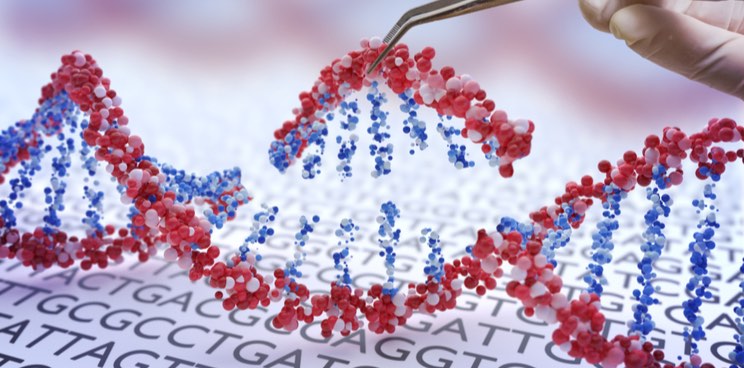With the year coming to a close, it’s time to review the most important biotech news events that took place in the European biotech industry in 2019.
It has been a solid year for the European biotech industry. In 2019, venture capital funding in Europe continued to be high after a very good year in 2018. New companies were founded, including STipe Therapeutics, Ermium Therapeutics, and Cysbio. Europe also saw some big approvals, such as the first vaccine for Ebola and a new gene therapy for the treatment of the blood disorder beta thalassemia.
However, there were some low points. Unstable public markets led to fewer IPOs from European biotechs. Several companies, including FIT Biotech and Cellnovo, went into administration, and a number of biotechs had major clinical trial failures, such as Atlantic Healthcare, Allergy Therapeutics, and InflaRx.
We have made a careful selection of news stories from among the most relevant and popular topics of the year. So buckle up, and enjoy the trip back through the last 12 months.

January
- The UK biotech Horizon Discovery obtained a license from Rutgers University, USA, to develop a form of gene editing technology called base editing, which is potentially better at editing single building blocks of DNA than the well known tool CRISPR/Cas9.
- The Danish enzymes developer Novozymes began a collaboration with the French bioplastics company Carbios. Under the agreement, Novozymes would mass-produce enzymes designed by Carbios to break down biodegradable plastics after they are thrown away. The technology is expected to launch in 2020.
- The French big pharma Sanofi invested €80M in the German company BioNTech and the two began to co-develop a therapeutic cancer vaccine based on injecting messenger RNA into solid tumors.
February
- Scientists in Denmark discovered four viral proteins able to disarm CRISPR, a key defense system that bacteria evolved to stop viruses. The proteins could one day be developed to fine-tune the effect of CRISPR gene editing and prevent errors.
- The French biotech Carbios developed the first plastic bottles made from 100% recyclable plastic, opening up the door for more efficient plastic recycling than we have today.
- Ynsect, a French company that turns insects into animal feed, raised a huge €110M Series C round to fund the construction of the world’s biggest automated insect farm for making environmentally friendly sources of protein.
March
- An HIV-positive patient with blood cancer went into HIV remission following a customized bone marrow transplant to treat their cancer from an HIV-resistant donor, making him the second patient ever to achieve this.
- After finding itself unable to keep up with its competitors, the French company Cellnovo decided to discontinue the manufacture of its diabetes management technology and go into administration.
- A gene therapy developed by the UK biotech Orchard Therapeutics proved better than expected at treating motor symptoms in children with the rare neurological disease metachromatic leukodystrophy in a phase II trial. The company expects to apply for market approval of the therapy in 2020.

April
- A skin cream developed by the Italian company Cassiopea to block androgen hormones in the skin reduced male pattern baldness for up to 12 months in a phase II trial. The company has since begun a phase II trial of the treatment in female sufferers of hair loss, and expects to advance to a phase III trial in men in 2020.
- A phase I/IIa trial of a donor stem cell therapy developed by the Belgian company Promethera found that the treatment improved symptoms such as jaundice in patients with acute liver failure, a condition with no effective treatments.
- Scientists in Israel became the first to 3D print a miniature heart complete with blood vessels using reprogrammed cells and biological material from a donor. This could one day replace the need for seeking compatible donor organs in heart transplants.
May
- A new UK cell therapy biotech called Quell Therapeutics arrived on the block with a €40M Series A. The company is developing therapies based on immune cells called T-regulatory cells, which could restrain the immune system in organ transplant rejection and autoimmune conditions.
- A gene therapy developed by the Dutch company uniQure ceased bleeds in three patients suffering from the incurable blood clotting disorder hemophilia B, according to an interim report from a phase IIb trial. Since then, the company has launched a phase III trial of the therapy, estimated to finish in 2024.
- Despite failing to beat the placebo in a phase III trial last year, the French biotech GenSight Biologics decided to proceed with seeking approval for its gene therapy for the treatment of genetic blindness. The company believes that the gene therapy is capable of treating both the treatment-injected eye and the placebo-injected eye in each patient, leading to the lack of difference observed in the trial.
June
- The first gene therapy for the treatment of the blood disorder beta thalassemia was given conditional approval by the EMA. The treatment, called Zynteglo and developed by the US company bluebird bio, was approved for patients over 12 years of age and could reduce the need for regular blood transfusions in patients with all but the most severe form of the condition.
- The Belgian biotech Imcyse raised a €35M Series B round to fund the development of a peptide drug designed to stop the immune system from attacking healthy tissues in autoimmune diseases without weakening the patient’s immune defenses like current medications do.
- A dietary supplement designed by the Swiss company Amazentis showed signs of improving mitochondrial health in a first-in-human study, which could lead to treatments slowing the aging process in muscles.

July
- The first-in-class small molecule drug fostemsavir, developed by the UK company ViiV Healthcare, suppressed the HIV virus in HIV-positive people who had become resistant to other antiretroviral drugs, providing protection for at least 96 weeks in a phase III trial.
- Following an unfavorable interim analysis, Milan-based MolMed suspended a phase III trial of its cell therapy Zalmoxis for the treatment of high-risk leukemia. Three months after this setback, the company would withdraw the conditional marketing authorization that the treatment received in 2016.
- In one of the biggest ever funding rounds in European biotech, the German company BioNTech raised a huge Series B of €290M to fund the development of individualized cancer vaccines. The company would go on to raise a smaller-than-expected €141M IPO on the Nasdaq three months later.
August
- A research group at ETH Zurich, Switzerland, developed a method making it possible to edit hundreds of genes at once with CRISPR gene editing. This is a far cry from current CRISPR techniques, which are capable of editing a handful of genes at best.
- A two-drug antiviral combo developed by the UK company ViiV Healthcare proved able to suppress HIV when injected every two months in a phase III trial. This long-acting treatment could offer an easier treatment regimen for HIV-positive people than daily oral medication.
- The FDA announced that it was considering penalties for the big pharma Novartis following the approval of its gene therapy Zolgensma for the treatment of a rare neurological disease because the company had admitted to submitting manipulated data in its approval application. Following the scandal, Novartis fired two senior employees involved in the data manipulation.
September
- According to results presented at the World Congress of Cardiology 2019, a first-in-class small molecule drug developed by the Swiss biotech Idorsia reduced the blood pressure of hypertensive patients in a phase II trial. The drug works via a different mechanism to current drugs, and could offer options for patients that aren’t able to control their blood pressure with current medications.
- Two cancer immunotherapy biotechs raised big equity rounds. First, the UK company Achilles Therapeutics raised a sizable €110M Series B round to test personalized cancer cell immunotherapies in humans for the first time. Second, the Danish STipe Therapeutics launched with a €20M Series A round to develop small molecule drugs that activate immune cells in a tumor’s vicinity to attack the cancer cells.
- A test for sepsis developed by the Swiss diagnostics company Abionic was able to predict within just five minutes which intensive care patients are likely to develop sepsis in a clinical study. This technology could save physicians vital time in the race to combat the deadly condition.

October
- In one small step for man, the Israeli company Aleph Farms became the first to grow meat from animal cells aboard the International Space Station. The invention could one day make space missions more self-sufficient.
- The French company Innate Pharma bagged €62M in an IPO on the Nasdaq, with a part of the proceeds earmarked for funding a phase II trial of the company’s checkpoint inhibitor monalizumab, which prevents tumors from switching off immune cells.
- Big pharma Merck teamed up with the UK biotech 4D Pharma in a potentially lucrative deal to develop three vaccines that are based on giving people live bacterial strains from the gut microbiome of healthy donors.
November
- The Belgian biotech Celyad revealed the first clinical efficacy data for an off-the-shelf CAR T-cell immunotherapy for the treatment of solid tumors. Six out of 12 enrolled patients saw their tumors shrink, and there surfaced no cases of graft-versus-host disease, a condition where foreign immune cells attack the host body. Further results are expected in 2020.
- The big pharma company Merck won a conditional marketing authorization from the European Commission for its Ebola vaccine called Ervebo. This vaccine was the first to be approved in Europe, and in the US in the following month.
- After finding it too difficult to meet the primary endpoint, the Dutch company Kiadis Pharma took the tough decision to abandon a phase III trial of its cell therapy for the treatment of graft-versus-host disease in blood cancer. Kiadis laid off half of its workforce, and switched focus to other, less advanced cell therapy programs in its pipeline.
December
- The UK cell therapy firm Autolus released interim results from four phase I trials showing the promise of its next-generation CAR T-cell immunotherapies for avoiding the severe side effects encountered in approved CAR T-cell therapies for blood cancer, such as cytokine release syndrome.
- The French biotech Diabeloop raised a €31M Series B round to roll out an artificial pancreas device designed to automatically control the blood glucose levels of type 1 diabetes patients. This is a step on the way to developing a fully automated artificial pancreas, seen by many as a holy grail for the diabetes management field.
- In an unusual deviation from regular clinical trial outcomes, the UK company Futura Medical announced that it would apply for market approval of a placebo gel treatment that it used in a phase III trial after both the placebo and drug-containing gel showed equal promise for treating erectile dysfunction.
We hope you enjoyed these highlights of 2019. Thanks to all our loyal readers out there and have a happy and productive new year in 2020!
Images from Shutterstock





